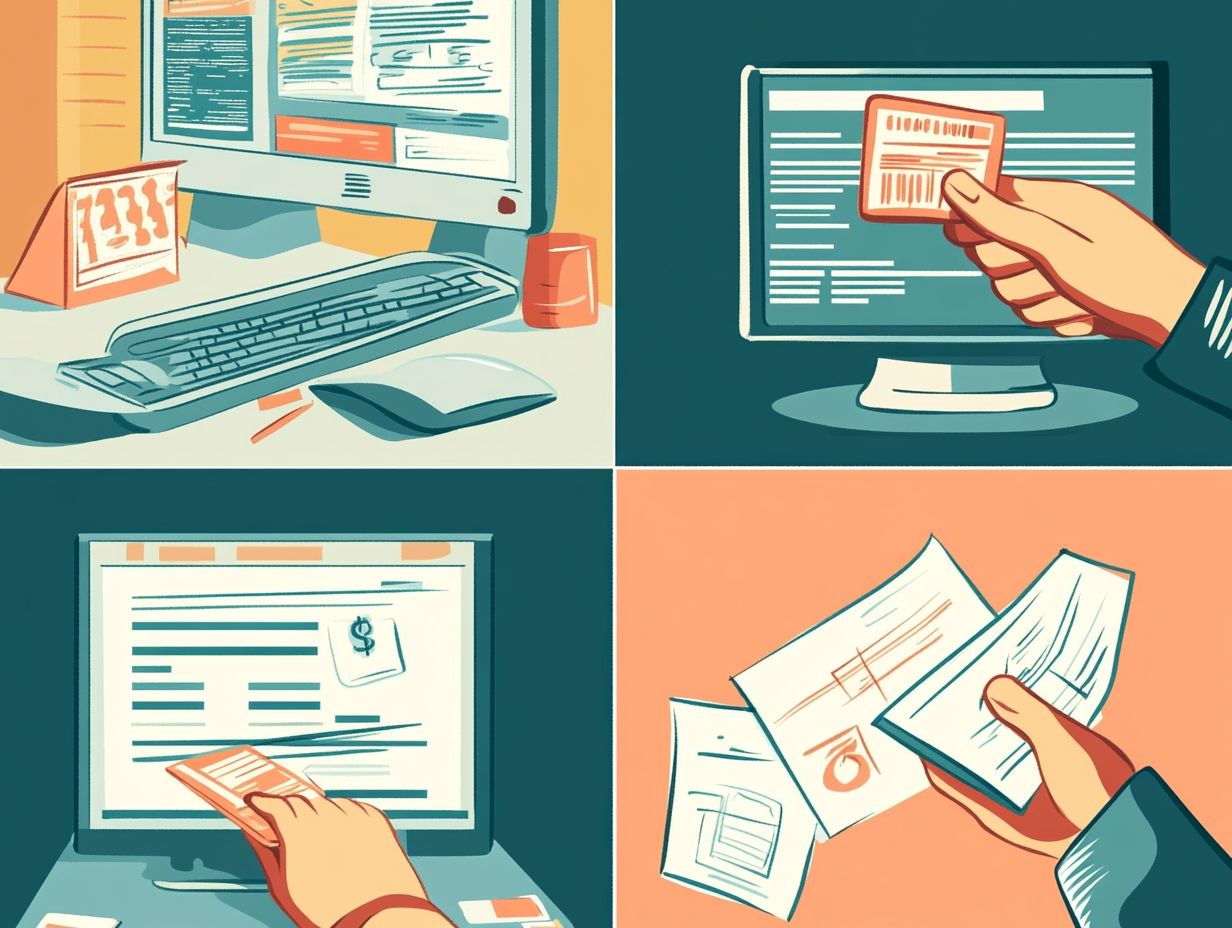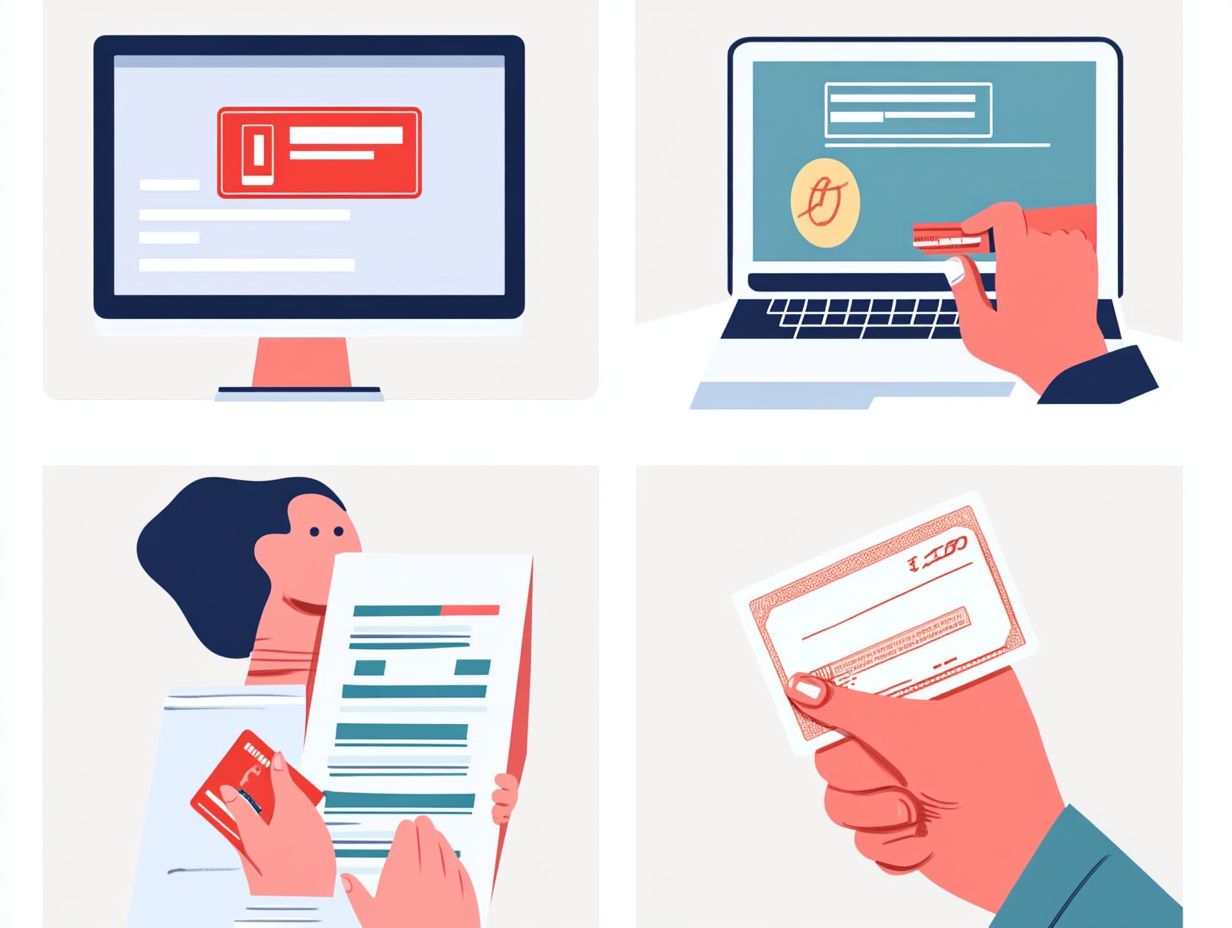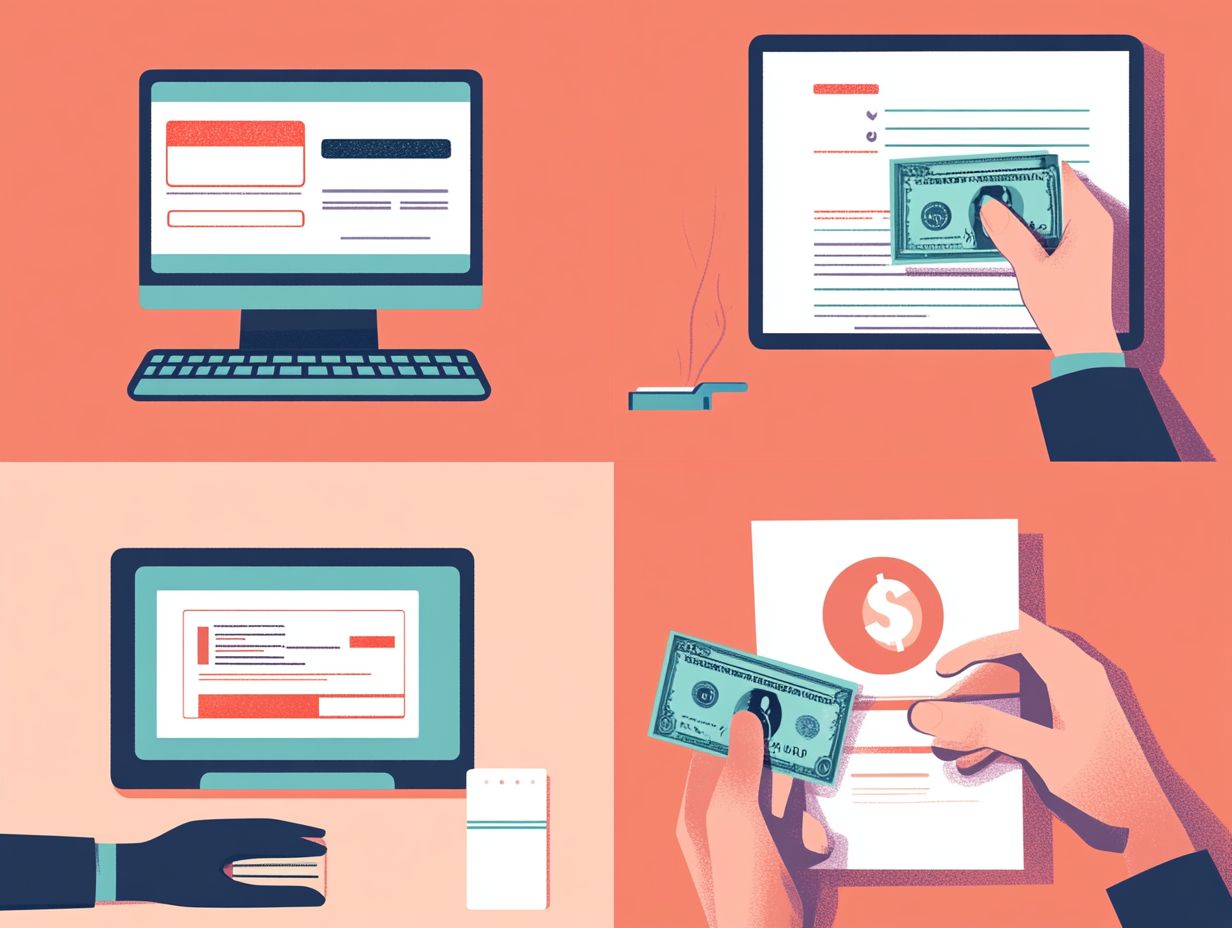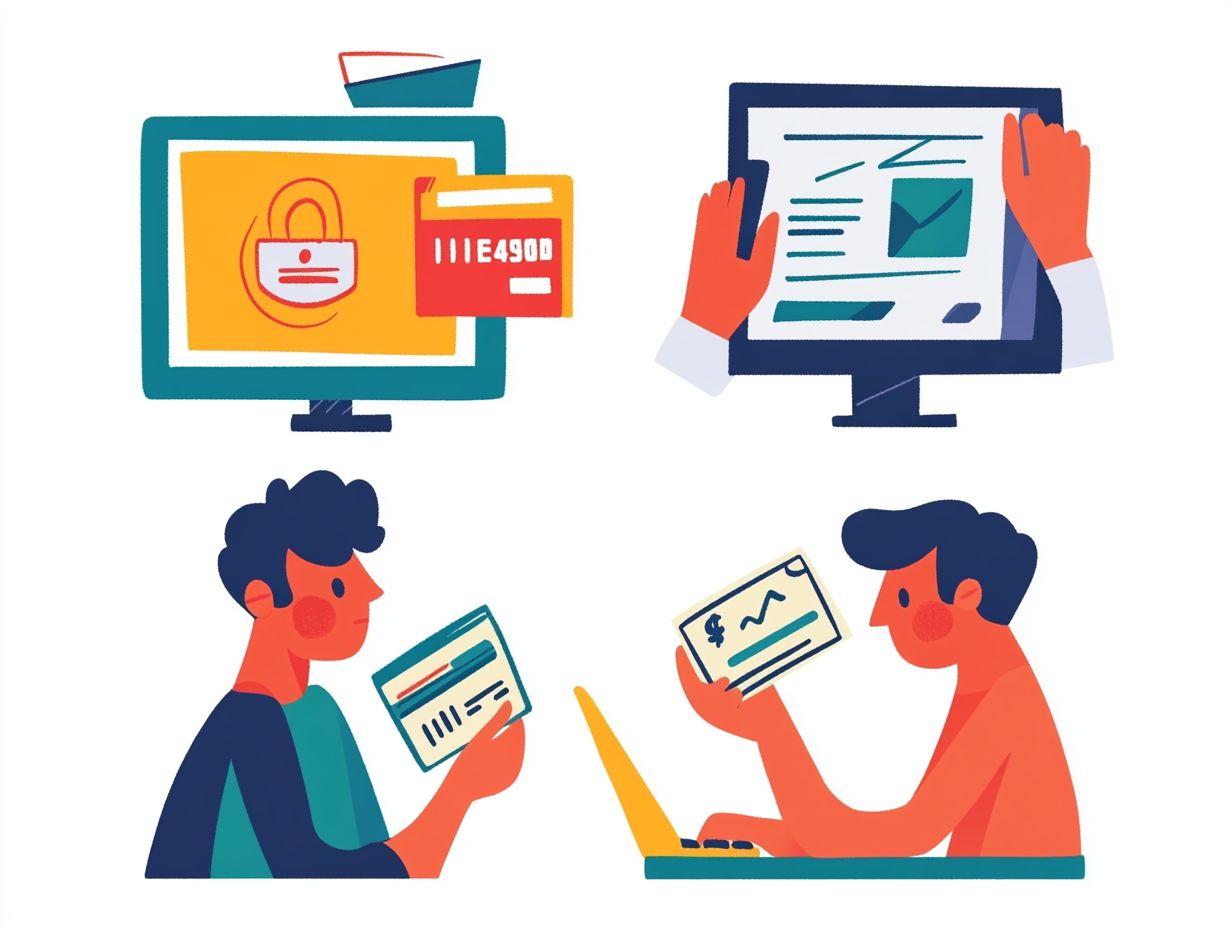Types of Fraud: 4 Common Examples
Fraud is an insidious challenge that can impact anyone, from individuals navigating daily life to businesses striving for success. Don t let fraud catch you off guard!
It s essential for you to understand the various types of fraud like credit card fraud, identity theft, investment fraud, and insurance fraud to effectively protect your finances and personal information.
This article serves as your comprehensive guide through these common fraud schemes, illuminating the warning signs to be vigilant about while equipping you with practical tips to safeguard yourself.
It also covers what happens if you commit fraud and offers strategies for businesses to fortify their defenses. Stay informed and empower yourself to combat these deceptive practices with confidence.
Contents
Key Takeaways:

Here are some crucial points to remember about fraud:
- Credit card fraud is the most common type, where someone uses your credit card information without permission.
- Identity theft involves stealing someone’s personal information to make purchases or open accounts in their name.
- Investment fraud scams victims into investing in fake or non-existent companies, promising high returns but ultimately causing financial losses.
1. Credit Card Fraud
Credit card fraud is a widespread form of online crime that impacts millions of consumers like you. It involves the unauthorized use of your credit card to make purchases, often through scams where criminals trick you into giving them your personal information.
This type of fraud not only leads to immediate financial losses but also creates long-lasting challenges related to identity theft and damage to your credit score.
Fraudsters employ a range of deceptive tactics, such as phishing emails designed to trick you into providing sensitive information and malware that quietly infiltrates your devices to capture your data.
Data breaches at major retailers and online services only amplify the issue, exposing countless accounts and putting your personal information at risk.
Financial institutions play a critical role in combating this crime by implementing advanced security measures and monitoring systems that are designed to detect suspicious activity.
However, if you do fall victim, you may face significant hurdles in recovering from the ordeal. From repairing your credit to navigating legal issues, the process can be overwhelming.
You might need to report the incident, file claims, and endure lengthy procedures to reclaim your identity all while grappling with the emotional toll of having your privacy violated.
2. Identity Theft
Identity theft is a serious crime that involves stealing your personal information, like your Social Security number, without your consent. This can lead to devastating outcomes, including financial loss, stolen tax refunds, and even elder fraud that targets the most vulnerable among us.
This violation of personal security can occur in various ways, from scams to the physical theft of your documents. As a victim, you might not only face significant financial repercussions but also emotional distress due to the misuse of your identity.
Recent statistics reveal that nearly 14 million people in the United States fall prey to identity theft each year, underscoring its alarming prevalence. Institutions like the IRS and the United States Department of Justice are pivotal in combating this issue, implementing stringent measures for reporting and investigating these incidents.
To safeguard against becoming a target, consider these prevention strategies:
- Using identity theft protection services
- Vigilantly monitoring your accounts
- Practicing secure online habits
Taking these proactive steps can significantly reduce your risk. So, take these steps today to protect yourself from fraud!
3. Investment Fraud
Investment fraud encompasses a range of deceptive practices aimed at misleading investors. These can include schemes involving cryptocurrencies and high-profile cases like that of Sam Bankman-Fried. Such cases reveal vulnerabilities in financial institutions and regulatory gaps that allow fraud to flourish.
This type of fraud can take many forms. Ponzi schemes and enticing fake investment opportunities promise extraordinary returns with minimal risk, drawing in those who may not fully understand investing.
As an investor, you might overlook warning signs. Stay on your toes! Spotting the signs early can save you a lot of trouble. Be cautious of overly aggressive marketing tactics and unregistered investment products. Recognize potential red flags, like pressure to invest quickly or a lack of transparency about investment details.
Doing your homework before making any financial commitment not only protects your assets but also leads to a more informed and confident investment journey.
4. Insurance Fraud

Insurance fraud is a significant issue manifesting in various forms, such as health care fraud, where false claims are submitted to health insurance providers.
This type of fraud can involve fraudulent charities seeking unwarranted funds under false pretenses. These actions drain resources from legitimate Medicaid systems and affect care for those who genuinely need assistance.
The problem extends beyond health care to auto insurance scams, where individuals may stage accidents or inflate damage claims. Businesses are not exempt; some inflate property values for larger payouts.
These deceptive practices erode the integrity of the insurance sector and lead to higher premiums for honest consumers like you.
To address this issue, familiarize yourself with red flags associated with suspicious insurance activities. Report any anomalies right away! The sooner you act, the better you can protect yourself.
How to Protect Yourself from Fraud
Protecting yourself from fraud requires your vigilance and proactive measures. Understand common tactics used by fraudsters, like phishing scams, where they trick you into giving them sensitive information.
To enhance your personal security, regularly monitor your credit reports for anomalies that could indicate identity theft. Using secure, unique passwords across different accounts can significantly reduce the risk of unauthorized access.
Educating yourself about various types of fraud from credit card scams to online auction fraud is essential for spotting those red flags.
When you notice suspicious activities, report them promptly to the appropriate authorities like the FBI. Alert your financial institutions so they can take swift action. Empowering yourself with knowledge can make all the difference in avoiding financial pitfalls.
What Are the Warning Signs of Fraud?
Recognizing the warning signs of fraud is crucial to safeguarding your finances. Look for common indicators, such as unexpected requests for personal information, unfamiliar charges on your accounts, and the ever-present threat of phishing scams that mimic legitimate communications.
Pay attention to any sudden changes in your credit score or unusual account activity; these can signal unauthorized access. If you start receiving a flood of unsolicited emails or texts asking for sensitive data, it s time to raise your alarms.
For example, if you receive a message that looks like it s from your bank requesting verification details, approach it with skepticism. Be cautious of high-pressure sales tactics or offers that seem too good to be true, as they often lead to scams.
By staying informed about these warning signs, you can better protect yourself and your financial assets.
What Should You Do If You Suspect Fraud?
If you suspect fraud, it s crucial to act quickly. Report the incident to relevant financial institutions and authorities, like the FBI or the United States Department of Justice. This minimizes potential damage and helps recover lost resources.
Start by writing down all important details regarding the suspected fraudulent activity. Include dates, transaction amounts, and any supporting communications. This information establishes a clear timeline and context, allowing investigators to act efficiently.
Next, contact your bank or credit card company to freeze accounts and dispute unauthorized charges. Providing them with detailed evidence will speed up their response.
Consider notifying credit reporting agencies to place a fraud alert on your accounts. Engaging with officials helps restore your security and ensures a comprehensive investigation is conducted, which can prevent others from becoming victims.
How Can You Stay Informed About the Latest Fraud Schemes?

Staying informed about the latest fraud schemes is vital for your protection. You can use valuable resources from organizations like the FBI, consumer protection websites, and social media platforms to stay updated on emerging phishing techniques and other fraudulent practices.
Subscribing to newsletters dedicated to fraud prevention is a smart move. These often offer timely alerts and resources tailored to help you stay ahead.
Following trustworthy accounts on platforms like Twitter and Facebook provides instant updates and encourages community discussions about current threats. Joining online forums or communities focused on consumer safety can be incredibly beneficial too. They offer firsthand accounts and practical tips that can prove invaluable.
Engaging with these resources equips you with the knowledge necessary to identify and avoid scams effectively.
What Are the Consequences of Committing Fraud?
The consequences of committing fraud can be severe. They may include significant legal ramifications, such as imprisonment, hefty fines, and civil penalties. Additionally, your reputation could suffer, leading to a loss of trust within financial institutions and the broader community.
Fraud cases often involve complex investigations and can result in various charges based on the severity of the offense. If convicted, you could face years in prison and substantial financial penalties that could devastate your personal finances.
Beyond the courtroom, long-term effects can be daunting. Securing stable employment may become challenging as background checks reveal your criminal record. This stigma complicates your journey to rebuild credibility and can create a cycle of distrust, making reintegration into society especially tough.
How Can Businesses Protect Themselves from Fraud?
Businesses can safeguard themselves from fraud by implementing strong security measures and training employees to recognize phishing and other cybercrime tactics. Establishing clear reporting protocols helps swiftly identify and mitigate fraudulent activities.
Investing in advanced cybersecurity technologies can detect unusual patterns in real time. Regular audits are crucial as they pinpoint vulnerabilities and enhance your organization s security posture.
Fostering a culture of vigilance among employees enables them to be the first line of defense against fraud.
Partnering with law enforcement can significantly boost your efforts, ensuring a prompt response in the event of fraud while enhancing preventive measures through shared intelligence.
Frequently Asked Questions
What are the four common types of fraud?

The four common types of fraud include identity theft, investment fraud, credit card fraud, and insurance fraud, but it’s important to understand all the major types of fraud to protect yourself effectively.
What is identity theft?
Identity theft happens when someone takes your personal information, like your name or credit card number, without your permission. They use this information for their own gain.
How does investment fraud work?
Investment fraud involves deceiving investors by hiding or twisting important details about an investment opportunity. This manipulation leads to poor investment decisions.
What should I do if I suspect credit card fraud?
Contact your credit card company right away to report any unauthorized charges. Freeze your account, file a police report, and keep an eye on your credit report for suspicious activity.
Can someone commit insurance fraud?
Yes, insurance fraud occurs when a person provides false information or causes damage for insurance benefits. This includes faking accidents or exaggerating losses.
How can I protect myself from becoming a victim of fraud?
Protect yourself by regularly checking your financial accounts for unauthorized activity. Shred sensitive documents, be careful about sharing personal information, and thoroughly research investment opportunities before deciding.





